Canned tomatoes have become a staple in many kitchens around the world. They offer convenience, versatility, and long shelf life. Canning tomatoes involves processing them at high temperatures to kill bacteria, preserving their taste and texture. This method allows tomatoes to be enjoyed year-round, regardless of the season. In this summary, we will explore the various uses of canned tomatoes, compare them to fresh tomatoes, discuss their nutritional value, and delve into the different types available in the market. Canned tomatoes are a versatile ingredient that can be used in numerous dishes. They serve as a flavorful base for sauces, soups, stews, and even drinks like bloody mary. Their rich tomato flavor can elevate any recipe and add depth to the overall taste. Whether used as a topping for pizza, a filling for lasagna, or a base for salsa, canned tomatoes offer convenience without compromising on quality. While fresh tomatoes are praised for their vibrant colors and juicy texture, canned tomatoes have their advantages. Fresh tomatoes have a relatively short shelf life, which can be a concern for those who don’t consume them regularly or prefer to stock up on ingredients. Canned tomatoes, on the other hand, have a long shelf life and can be stored for months or even years, making them a popular pantry staple. Canning tomatoes also have an advantage when it comes to availability. Fresh tomatoes may be seasonal, with limited options during certain times of the year. Canned tomatoes, however, are available year-round, allowing consumers to enjoy tomato-based dishes even when fresh tomatoes are not in season. This convenience is particularly appealing to those who live in regions with harsh climates or limited access to fresh produce. Another benefit of canned tomatoes is the preservation of nutrients. While it is true that some nutrients may be lost during the canning process, the overall nutritional value remains relatively intact. Tomatoes are a good source of vitamins A and C, antioxidants, and lycopene, which is known for its potential health benefits. Canned tomatoes can provide these essential nutrients, making it a convenient and nutritious alternative to fresh tomatoes.

tomato paste
 It’s important to note that not all canned tomatoes are created equal. There are different varieties available in the market, including whole peeled tomatoes, crushed tomatoes, diced tomatoes, and tomato puree. Each type has its own texture and taste, and choosing the right one for a specific recipe can greatly affect the outcome. Whole peeled tomatoes are typically used for dishes where the tomato is the star, while crushed tomatoes are ideal for sauces and soups. Diced tomatoes offer a chunky texture, making them suitable for salsas and chilies. Tomato puree is smooth and concentrated, perfect for thickening sauces or adding richness to a dish. When shopping for canned tomatoes, it’s important to read the labels and choose those with limited additives or preservatives. Some low-quality canned tomatoes may contain added sugar or excessive amounts of salt, which can alter the taste and overall healthiness of the product. Opting for organic or no-salt-added options can ensure a higher quality product with fewer additives. In conclusion, canned tomatoes are a versatile and convenient ingredient that can enhance the flavor of various dishes. While fresh tomatoes have their own merits, canned tomatoes offer the advantage of longer shelf life, year-round availability, and preserved nutritional value. Whether used as a base for sauces, soups, or enjoyed on their own, the right type of canned tomatoes can elevate any recipe. By being mindful of additives and choosing high-quality options, consumers can enjoy the convenience and benefits of canned tomatoes without compromising on taste and healthiness.I. Introduction to the Canned Tomato Industry The canned tomato industry has been thriving for many years, meeting the demand for convenience and versatility in kitchens around the world. Canning tomatoes involves processing them at high temperatures to kill bacteria, preserving their taste and texture. This method allows tomatoes to be enjoyed year-round, regardless of the season. In this article, we will explore the market size and growth of the canned tomato industry, emerging trends, key players, and the future outlook for this sector.
It’s important to note that not all canned tomatoes are created equal. There are different varieties available in the market, including whole peeled tomatoes, crushed tomatoes, diced tomatoes, and tomato puree. Each type has its own texture and taste, and choosing the right one for a specific recipe can greatly affect the outcome. Whole peeled tomatoes are typically used for dishes where the tomato is the star, while crushed tomatoes are ideal for sauces and soups. Diced tomatoes offer a chunky texture, making them suitable for salsas and chilies. Tomato puree is smooth and concentrated, perfect for thickening sauces or adding richness to a dish. When shopping for canned tomatoes, it’s important to read the labels and choose those with limited additives or preservatives. Some low-quality canned tomatoes may contain added sugar or excessive amounts of salt, which can alter the taste and overall healthiness of the product. Opting for organic or no-salt-added options can ensure a higher quality product with fewer additives. In conclusion, canned tomatoes are a versatile and convenient ingredient that can enhance the flavor of various dishes. While fresh tomatoes have their own merits, canned tomatoes offer the advantage of longer shelf life, year-round availability, and preserved nutritional value. Whether used as a base for sauces, soups, or enjoyed on their own, the right type of canned tomatoes can elevate any recipe. By being mindful of additives and choosing high-quality options, consumers can enjoy the convenience and benefits of canned tomatoes without compromising on taste and healthiness.I. Introduction to the Canned Tomato Industry The canned tomato industry has been thriving for many years, meeting the demand for convenience and versatility in kitchens around the world. Canning tomatoes involves processing them at high temperatures to kill bacteria, preserving their taste and texture. This method allows tomatoes to be enjoyed year-round, regardless of the season. In this article, we will explore the market size and growth of the canned tomato industry, emerging trends, key players, and the future outlook for this sector.
Specifications of tomato paste
 II. Market Overview The market for canned tomatoes has seen steady growth over the years. According to a report by Grand View Research, the global canned vegetable market, including canned tomatoes, was valued at $14.06 billion in 2020 and is expected to reach $18.45 billion by 2028. This growth can be attributed to several factors, including increasing demand for convenient and shelf-stable food products, the versatility of canned tomatoes, and the rise in home cooking and meal preparation. III. Key Players in the Industry The canned tomato industry is highly competitive, with several key players dominating the market. Some of the prominent companies in this sector include Del Monte Foods, Red Gold, Hunt’s, Muir Glen, and Mutti. These companies offer a wide range of canned tomato products, including different varieties such as whole peeled tomatoes, crushed tomatoes, and tomato puree. They often focus on quality, taste, and convenience to attract consumers. IV. Emerging Trends The canned tomato industry is constantly evolving, with emerging trends shaping the market. One significant trend is the growing demand for organic and sustainable canned tomatoes. Consumers are increasingly conscious of the environmental impact of their food choices and seek products that align with their values. As a result, many companies have started offering organic and sustainably sourced canned tomatoes, catering to this consumer segment. Another emerging trend is the rise in demand for specialty canned tomato products. Consumers are looking for unique flavors and varieties beyond traditional canned tomatoes. This has led to the introduction of specialty canned tomatoes, such as fire-roasted tomatoes, sun-dried tomatoes, and heirloom tomatoes. These products offer a distinct taste and texture, allowing consumers to experiment with different flavors in their recipes. V. Health and Nutritional Benefits Canned tomatoes offer numerous health and nutritional benefits. They are a rich source of vitamins A and C, antioxidants, and lycopene. Lycopene is a powerful antioxidant that has been associated with potential health benefits, including reducing the risk of certain diseases. Canned tomatoes also contain other essential nutrients such as potassium and fiber. While the canning process may cause some loss of nutrients, the overall nutritional value of canned tomatoes remains relatively intact, making them a healthy addition to a balanced diet. VI. Applications in the Food Industry Canned tomatoes are widely used in the food industry for their flavor, convenience, and versatility. They serve as a base ingredient for various products such as pasta sauces, tomato soups, and salsa. They can also be used in ready-to-eat meals, frozen foods, and canned vegetable combinations. The consistent quality and long shelf life of canned tomatoes make them ideal for large-scale food production, ensuring a reliable and convenient source of tomatoes year-round.
II. Market Overview The market for canned tomatoes has seen steady growth over the years. According to a report by Grand View Research, the global canned vegetable market, including canned tomatoes, was valued at $14.06 billion in 2020 and is expected to reach $18.45 billion by 2028. This growth can be attributed to several factors, including increasing demand for convenient and shelf-stable food products, the versatility of canned tomatoes, and the rise in home cooking and meal preparation. III. Key Players in the Industry The canned tomato industry is highly competitive, with several key players dominating the market. Some of the prominent companies in this sector include Del Monte Foods, Red Gold, Hunt’s, Muir Glen, and Mutti. These companies offer a wide range of canned tomato products, including different varieties such as whole peeled tomatoes, crushed tomatoes, and tomato puree. They often focus on quality, taste, and convenience to attract consumers. IV. Emerging Trends The canned tomato industry is constantly evolving, with emerging trends shaping the market. One significant trend is the growing demand for organic and sustainable canned tomatoes. Consumers are increasingly conscious of the environmental impact of their food choices and seek products that align with their values. As a result, many companies have started offering organic and sustainably sourced canned tomatoes, catering to this consumer segment. Another emerging trend is the rise in demand for specialty canned tomato products. Consumers are looking for unique flavors and varieties beyond traditional canned tomatoes. This has led to the introduction of specialty canned tomatoes, such as fire-roasted tomatoes, sun-dried tomatoes, and heirloom tomatoes. These products offer a distinct taste and texture, allowing consumers to experiment with different flavors in their recipes. V. Health and Nutritional Benefits Canned tomatoes offer numerous health and nutritional benefits. They are a rich source of vitamins A and C, antioxidants, and lycopene. Lycopene is a powerful antioxidant that has been associated with potential health benefits, including reducing the risk of certain diseases. Canned tomatoes also contain other essential nutrients such as potassium and fiber. While the canning process may cause some loss of nutrients, the overall nutritional value of canned tomatoes remains relatively intact, making them a healthy addition to a balanced diet. VI. Applications in the Food Industry Canned tomatoes are widely used in the food industry for their flavor, convenience, and versatility. They serve as a base ingredient for various products such as pasta sauces, tomato soups, and salsa. They can also be used in ready-to-eat meals, frozen foods, and canned vegetable combinations. The consistent quality and long shelf life of canned tomatoes make them ideal for large-scale food production, ensuring a reliable and convenient source of tomatoes year-round.
buy tomato paste
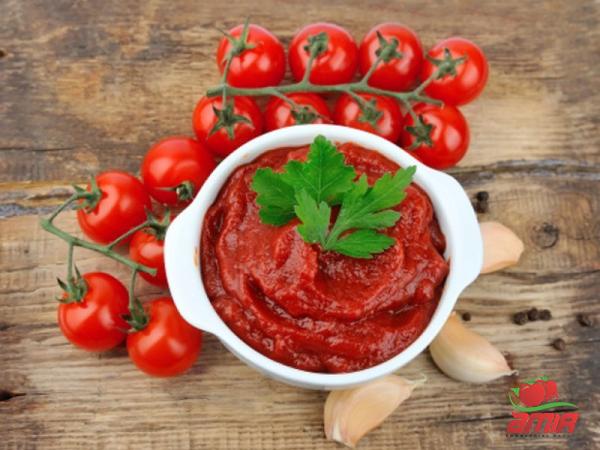 VII. Impact on Food Waste Reduction One hidden benefit of the canned tomato industry is its contribution to reducing food waste. Fresh tomatoes have a relatively short shelf life and are prone to spoilage, leading to significant food waste. Canning tomatoes allows for their preservation and extends their shelf life, reducing the amount of fresh tomatoes that go to waste. This not only benefits the environment but also helps to ensure a more sustainable and efficient food supply chain. VIII. Challenges and Opportunities The canned tomato industry also faces several challenges and opportunities. One major challenge is the increasing competition from alternative products such as tomato-based sauces and pastes. These products offer convenience and concentrated flavors, appealing to consumers who prefer ready-to-use products. To stay competitive, canned tomato manufacturers need to innovate and differentiate their products to meet changing consumer preferences. On the other hand, there are significant opportunities for growth in the canned tomato industry. The rise in home cooking and meal preparation, particularly during the COVID-19 pandemic, has led to increased demand for pantry staples such as canned tomatoes. Additionally, the trend towards healthier eating and sustainable food choices presents an opportunity for manufacturers to develop and market organic and sustainably sourced canned tomato products. IX. Future Outlook The future outlook for the canned tomato industry is promising. The global demand for canned vegetables, including canned tomatoes, is expected to continue growing, driven by factors such as convenience, versatility, and increased home cooking. Manufacturers will need to adapt to changing consumer preferences by offering a variety of products, including organic and specialty canned tomatoes. Innovations in packaging and processing technologies may also play a role in shaping the future of this industry. In conclusion, the canned tomato industry is thriving, driven by the demand for convenience, versatility, and year-round availability of tomatoes. The market has seen steady growth, with key players offering a variety of canned tomato products that cater to different consumer preferences. Emerging trends such as the demand for organic and specialty canned tomatoes present opportunities for manufacturers to expand their product offerings. The health and nutritional benefits of canned tomatoes, their applications in the food industry, and their contribution to reducing food waste further contribute to their popularity. As the market evolves, manufacturers will need to adapt to changing consumer preferences and leverage innovation to ensure continued growth and success in the canned tomato industry.
VII. Impact on Food Waste Reduction One hidden benefit of the canned tomato industry is its contribution to reducing food waste. Fresh tomatoes have a relatively short shelf life and are prone to spoilage, leading to significant food waste. Canning tomatoes allows for their preservation and extends their shelf life, reducing the amount of fresh tomatoes that go to waste. This not only benefits the environment but also helps to ensure a more sustainable and efficient food supply chain. VIII. Challenges and Opportunities The canned tomato industry also faces several challenges and opportunities. One major challenge is the increasing competition from alternative products such as tomato-based sauces and pastes. These products offer convenience and concentrated flavors, appealing to consumers who prefer ready-to-use products. To stay competitive, canned tomato manufacturers need to innovate and differentiate their products to meet changing consumer preferences. On the other hand, there are significant opportunities for growth in the canned tomato industry. The rise in home cooking and meal preparation, particularly during the COVID-19 pandemic, has led to increased demand for pantry staples such as canned tomatoes. Additionally, the trend towards healthier eating and sustainable food choices presents an opportunity for manufacturers to develop and market organic and sustainably sourced canned tomato products. IX. Future Outlook The future outlook for the canned tomato industry is promising. The global demand for canned vegetables, including canned tomatoes, is expected to continue growing, driven by factors such as convenience, versatility, and increased home cooking. Manufacturers will need to adapt to changing consumer preferences by offering a variety of products, including organic and specialty canned tomatoes. Innovations in packaging and processing technologies may also play a role in shaping the future of this industry. In conclusion, the canned tomato industry is thriving, driven by the demand for convenience, versatility, and year-round availability of tomatoes. The market has seen steady growth, with key players offering a variety of canned tomato products that cater to different consumer preferences. Emerging trends such as the demand for organic and specialty canned tomatoes present opportunities for manufacturers to expand their product offerings. The health and nutritional benefits of canned tomatoes, their applications in the food industry, and their contribution to reducing food waste further contribute to their popularity. As the market evolves, manufacturers will need to adapt to changing consumer preferences and leverage innovation to ensure continued growth and success in the canned tomato industry.
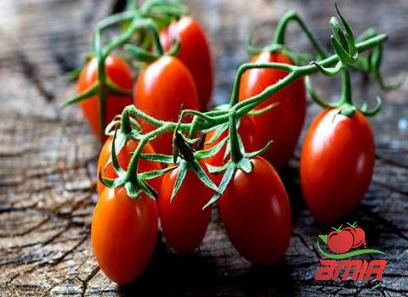
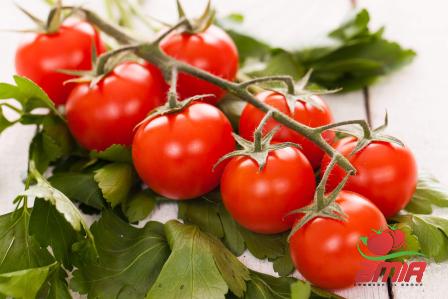




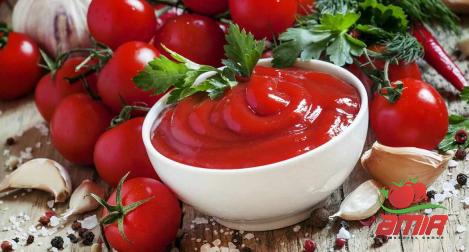
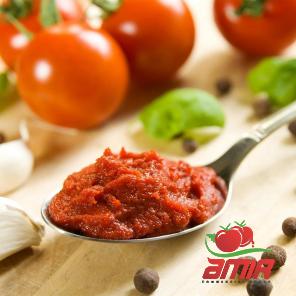
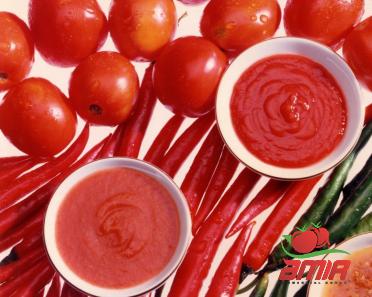

Your comment submitted.